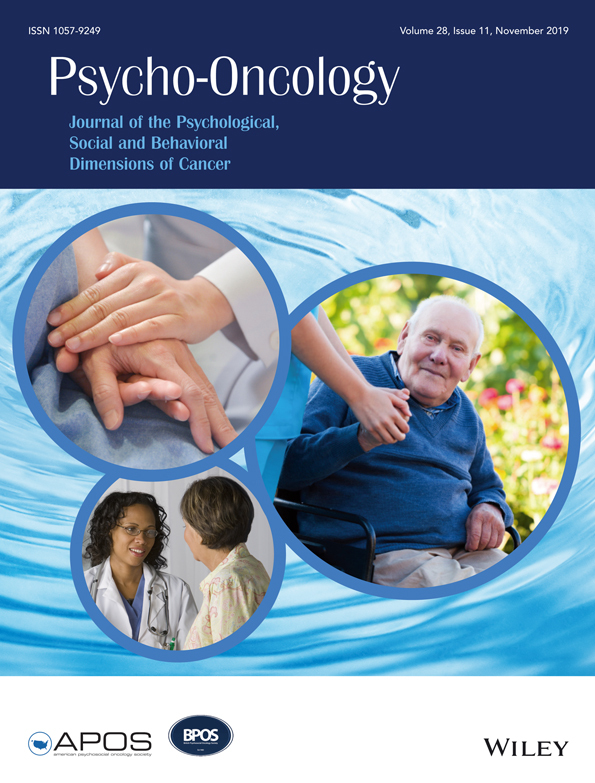Illness uncertainty, partner support, and quality of life: A dyadic longitudinal investigation of couples facing prostate cancer
Abstract
Objective
Prostate cancer (PC) and its treatment often result in chronic, negative side-effects that affect both patients and their romantic partners. Illness uncertainty is a chronic stressor that impacts PC patients and their partners and, if left unmanaged, predicts decreased interpersonal functioning and quality of life (QOL) after treatment is complete. This study explored associations among psychosocial constructs, measured from both partners during the first year following a PC diagnosis, to better understand both partners' experiences and identify potential intervention targets for improving QOL.
Methods
Couples (N = 165) in which one partner was undergoing treatment for PC were recruited from the Duke University Medical Center of Urology. Patients and their partners were surveyed at four time points: diagnosis and 1-, 6-, and 12-months post treatment. An Actor-Partner Interdependence Model (APIM) framework was used to examine associations among perceived partner support, nonsupportive behaviors, illness uncertainty, relationship satisfaction, and physical and mental QOL.
Results
Partners feeling more supported at diagnosis was related to patients feeling more supported at 6 months. When patients' illness uncertainty decreased between diagnosis and 1 month, partners reported feeling more supported and engaging in fewer nonsupportive behaviors at 6-months post-treatment. Finally, partners' reports of support at 6 months predicted patients' 12-month ratings of physical and mental QOL and relationship satisfaction.
Conclusions
Findings highlight psychological interdependence between PC patients and their partners. Future interventions to improve long-term QOL in couples facing PC may benefit by targeting both partner support and illness uncertainty.




